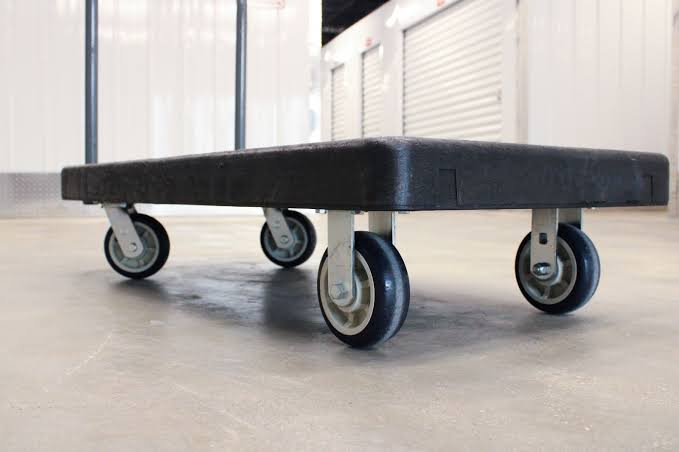Industrial caster wheels are essential components in many industries, enabling the efficient movement of heavy loads and equipment. Ensuring their longevity is crucial for operational efficiency and cost savings. This blog will guide you through the best practices to maintain and extend the lifespan of your industrial caster wheels.
Understanding Industrial Caster Wheels
Industrial caster wheels are specifically designed to handle heavy loads in various industrial settings, such as warehouses, manufacturing plants, and hospitals. They come in different materials, sizes, and designs, each suited for specific applications. The key to maintaining them lies in understanding their construction and the factors that affect their wear and tear.
Regular Inspection and Cleaning
1. Conduct Routine Inspections
Regularly inspect your industrial caster wheels for signs of wear, damage, or misalignment. Look for cracks, flat spots, or uneven wear on the wheels. Check the mounting plates and fasteners to ensure they are secure and free of corrosion. Any unusual noise during movement can indicate potential issues that need addressing.
2. Clean Your Caster Wheels
Dirt, debris, and chemicals can accumulate on caster wheels, leading to increased friction and wear. Regular cleaning helps maintain smooth operation and prevents premature deterioration. Use a mild detergent and water to clean the wheels, and avoid harsh chemicals that can damage the wheel material.
Proper Lubrication
3. Lubricate Moving Parts
Proper lubrication of the wheel bearings and swivel heads is essential for smooth operation and reduced friction. Use a high-quality industrial lubricant suitable for your caster wheels. Apply the lubricant according to the manufacturer’s instructions and wipe off any excess to prevent attracting dirt and debris.
Load Management
4. Adhere to Load Capacity Limits
Each industrial caster wheel has a specified load capacity. Exceeding this limit can cause deformation, excessive wear, and potential failure. Ensure that the load is evenly distributed across all wheels and avoid overloading. Regularly review the load capacity with your caster wheel suppliers to ensure compatibility with your operational needs.
5. Use the Right Wheel for the Right Surface
Different wheel materials are suited for different floor surfaces. For instance, polyurethane wheels work well on smooth surfaces, while rubber wheels are better for rough or uneven terrain. Using the appropriate wheel type reduces stress and wear on the wheels and the flooring.
Preventative Maintenance
6. Implement a Maintenance Schedule
Develop and follow a preventative maintenance schedule. This should include regular inspections, cleaning, lubrication, and load capacity checks. Documenting maintenance activities helps track the condition of your caster wheels and predict when replacements or repairs are needed.
7. Rotate Caster Wheels
In high-use areas, rotate caster wheels periodically to ensure even wear. This practice helps extend the lifespan of the wheels by distributing the wear more evenly across all wheels.
Storage and Handling
8. Store Equipment Properly
When not in use, store equipment with caster wheels in a clean, dry environment. Avoid leaving heavy loads on stationary caster wheels for extended periods, as this can cause flat spots and deformities. Elevate the equipment on blocks if long-term storage is necessary.
9. Handle Equipment with Care
Avoid rough handling of equipment with caster wheels. Sudden impacts, such as dropping loads or colliding with obstacles, can damage the wheels and their mounting systems. Train personnel on the proper handling techniques to minimize the risk of damage.
Working with Caster Wheel Suppliers
10. Choose Reliable Caster Wheel Suppliers
Select reputable caster wheel suppliers who provide high-quality products and support. Reliable suppliers can offer valuable advice on maintenance, suitable wheel types, and replacement parts. Building a strong relationship with your suppliers ensures you have access to the best solutions for your needs.
11. Stay Updated with Supplier Recommendations
Keep up-to-date with the latest recommendations and maintenance tips from your caster wheel suppliers. Suppliers often release updates on new products, maintenance practices, and industry standards that can help extend the lifespan of your caster wheels.
Partnering with Leading Castor Wheel Manufacturers and Exporters
Choosing the right PU castor wheels involves collaborating with trusted suppliers who specialize in industrial mobility solutions. Leading castor wheel manufacturers in India provide expertise in designing and delivering high-quality products that meet stringent industrial standards. They offer a range of PU castor wheels with advanced features and customization options to address specific operational challenges and requirements.
Conclusion
Maintaining and extending the lifespan of your industrial caster wheels requires regular inspection, proper lubrication, load management, and preventative maintenance. By implementing these practices and working closely with reliable caster wheel suppliers, you can ensure the efficiency and longevity of your equipment. Regular attention to your caster wheels not only improves their performance but also contributes to the overall safety and productivity of your operations.
Investing time in the proper maintenance of your industrial caster wheels pays off in the long run, reducing downtime, maintenance costs, and the need for frequent replacements. Prioritize these practices to keep your wheels rolling smoothly and your business running efficiently.



